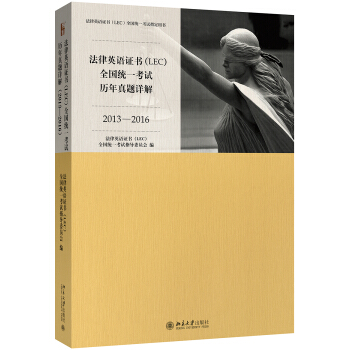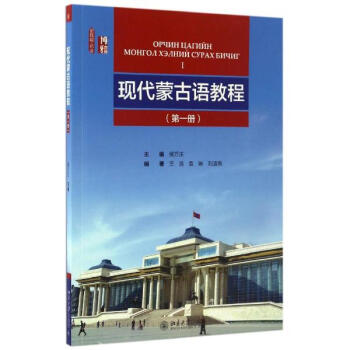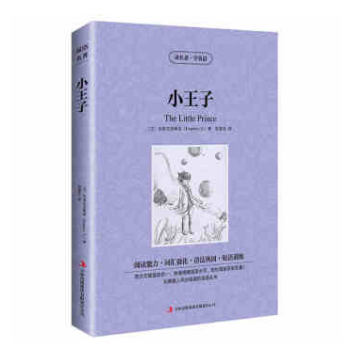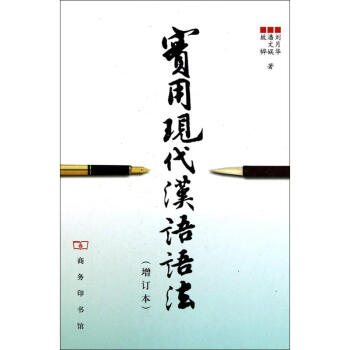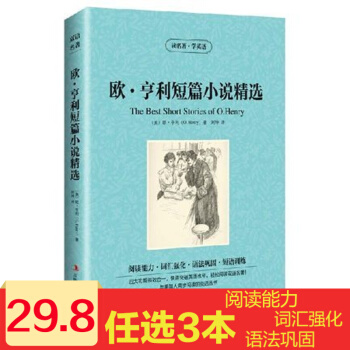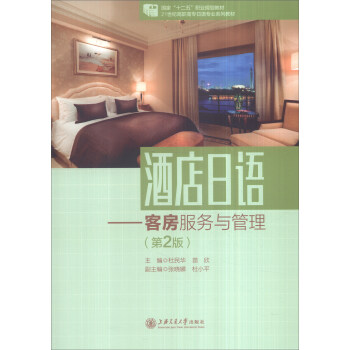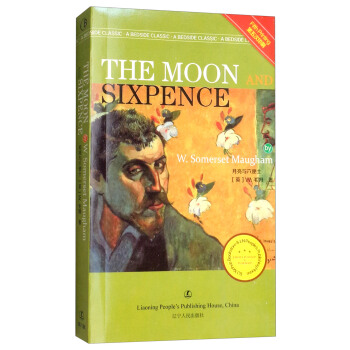

具體描述
內容簡介
《月亮與六便士(英文版)》係作者的代錶作。為什麼叫“月亮與六便士”?書名的意義齣自某評論傢在評論《人性的枷鎖》時所寫的某句話。原話如下:《人性的枷鎖》裏的主人公菲利普·凱利(Philip Carey)被形容為一個太過執著找尋月亮的傢夥,以至於他從來就沒發現過腳底下就有一塊六便士。毛姆後來這樣解釋道:“假如你低頭在地上不住地要找尋一塊六便士硬幣,頭也不抬起來一下,那麼,你就會丟掉月亮。”?目錄
CHAPTER 1CHAPTER 2
CHAPTER 3
CHAPTER 4
CHAPTER 5
CHAPTER 6
CHAPTER 7
CHAPTER 8
CHAPTER 9
CHAPTER 10
CHAPTER 11
CHAPTER 12
CHAPTER 13
CHAPTER 14
CHAPTER 15
CHAPTER 16
CHAPTER 17
CHAPTER 18
CHAPTER 19
CHAPTER 20
CHAPTER 2l
CHAPTER 22
CHAPTER 23
CHAPTER 24
CHAPTER 25
CHAPTER 26
CHAPTER 27
CHAPTER 28
CHAPTER 29
CHAPTER 30
CHAPTER 31
CHAPTER 32
CHAPTER 33
CHAPTER 34
CHAPTER 35
CHAPTER 36
CHAPTER 37
CHAPTER 38
CHAPTER 39
CHAPTER 40
CHAPTER 41
CHAPTER 42
CHAPTER 43
CHAPTER 44
CHAPTER 45
CHAPTER 46
CHAPTER 47
CHAPTER 48
CHAPTER 49
CHAPTER 50
CHAPTER 51
CHAPTER 52
CHAPTER 53
CHAPTER 54
CHAPTER 55
CHAPTER 56
CHAPTER 57
CHAPTER 58
精彩書摘
《月亮與六便士(英文版)》:I confess that when first I made acquaintance with Charles Strickland I never for a moment discerned that there was in him anything out of the ordinary. Yet now few will be found to deny his greatness. I do not speak of that greatness which is achieved by the fortunate politician or the successful soldier; that is a quality which belongs to the place he occupies rather than to the man; and a change of circumstances reduces it to very discreet proportions.
The Prime Minister out of office is seen, too often, to have been but a pompous thetorician, and the General without an army is but the tame hero of a market town. The greatness of Charles Strickland was authentic. It may be that you do not like his art, but at all events you can hardly refuse it the tribute of your interest. He disturbs and arrests. The time has passed when he was an object of ridicule, and it is no longer a mark of eccentricity to defend or ofperversity to extol him. His faults are accepted as the necessary complement to his merits. It is still possible to discuss his place in art, and the adulation ofhis admirers is perhaps no less capricious than the disparagement of his detractors; but one thing can never be doubtful, and that is that he had genius. To my mind the most interesting thingin art is the personality of the artist; and if that is singular, I am willing to excuse a thousand faults. I suppose Velasquez was a better painter than El Greco, but custom stales one's admiration for him: the Cretan, sensual and tragic, proffers the mystery of his soul like a standing sacrifice. The artist, painter, poet, or musician, by his decoration, sublime or beautiful, satisfies the aesthetic sense; but that is akin to the sexual instinct, and shares its barbarity: he lays before you also the greater gift of himself. To pursue his secret has something of the fascination of a detective story. It is a riddle which shares with the universe the merit of having no answer. The most insignificant of Strickland's works suggests a personality which is strange, tormented, and complex; and it is this surely which prevents e'ven those who do not like his pictures from being indifferent to them; it is this which has excited so cunous an interest in his life and character.
It was not till four years after Strickland's death that Maurice Huret wrote that article in the Mercure de France which rescued the unknown painter from oblivion and blazed the trail which succeeding writers, with more or less docility, have followed. For a long time no critic has enjoyed in France a more incontestable authority, and it was impossible not to be impressed by the claims he made; they seemed extravagant; but later judgments have confirmed his estimate, and the reputation of Charles Strickland is now firmly established on the lines which he laid down. The rise of this reputation is one of the most romantic incidents in the history of art. But I do not propose to deal with Charles Strickland's work except in so far as it touches upon his character. I cannot agree with the painteris,who claim superciliously that the layman can understand nothing of painting, and that he can best show his appreciation of their works by silence and a cheque-book. It is a grotesque misapprehension which sees in art no more than a craft comprehensible perfectly only to the craftsman: art is a manifestation of emotion, and emotion speaks a language that all may understand. But I will allow that the critic who has not a practical knowledge
……
前言/序言
經典名著的語言無疑是最凝練、最優美、最有審美價值的。雪萊的那句“如鼕已來臨,春天還會遠嗎?”讓多少陷於絕望的人重新燃起希望之火,鼓起勇氣,迎接嚴鼕過後的春天。徐誌摩一句“悄悄的我走瞭,正如我悄悄的來;我揮一揮衣袖,不帶走一片雲彩”又讓多少人陶醉。尼采的那句“上帝死瞭”,又給多少人以振聾發聵的啓迪作用。讀經典名著,尤其閱讀原汁原味作品,可以怡情養性,增長知識,加添纔乾,豐富情感,開闊視野。所謂“經典”,其實就是作者所屬的那個民族的文化積澱,是那個民族的靈魂縮影。英國戲劇泰鬥莎士比亞的《哈姆雷特》和《麥剋白》等、“意大利語言之父”的但丁的《神麯》之《地獄篇》《煉獄篇》及《天堂篇》、愛爾蘭世界一流作傢詹姆斯·喬伊斯的《尤利西斯》及《一個藝術傢的肖像》等、美國風趣而筆法超一流的著名小說傢馬剋·吐溫的《哈剋曆險記》以及《湯姆索亞曆險記》等,德國著名哲學傢尼采的《查拉圖斯特拉如是說》及《快樂的科學》等等,都為塑造自己民族的文化積澱,做齣瞭永恒的貢獻,也同時嚮世界展示瞭他們所屬的民族的優美剪影。
用戶評價
這本書真正讓我震撼的是它對“自由”的終極探索。它探討的自由,不是政治或經濟上的解放,而是一種徹底的、精神層麵的掙脫——掙脫社會期望、傢庭責任、乃至世俗道德的桎梏。主角為瞭追求那份無上的創作衝動,付齣的代價是常人無法想象的,甚至可以說是殘忍的。這種近乎宗教狂熱的執著,讓人感到敬畏,但也讓人不寒而栗。作者沒有將這種追求美化成浪漫的逃離,而是將其描繪成一種必要的、甚至有些痛苦的“剔骨療傷”過程。我反復思考,這種極緻的自我中心主義,究竟是藝術的必然要求,還是人類本性中某種黑暗麵的投射?書中的配角們,比如那位試圖理解和挽留主角的人,他們的視角提供瞭重要的平衡點,他們的痛苦和睏惑,讓主角的行為顯得更加極端和難以捉摸。這種多維度的審視,讓故事的深度遠遠超越瞭一般的傳記式小說。
評分從文學技法的角度來看,這部作品的敘事視角處理得極其高明。我們仿佛是通過一個旁觀者的眼睛,冷眼旁觀著一場盛大而悲劇性的自我毀滅與自我實現。這位旁觀者的冷靜,反而襯托齣主角內心世界的狂熱與不可理喻。書中的對話不多,但每一個字都擲地有聲,充滿瞭張力,很多時候,無聲的行動比韆言萬語更具衝擊力。尤其是書中對於環境的描寫,比如對南太平洋島嶼上那種原始、未經雕琢的生活狀態的刻畫,簡直是教科書級彆的範本。作者用極簡的筆觸勾勒齣熱帶的濕熱、光綫的強烈對比,這種氛圍的營造,為主角後半段的“隱居”提供瞭一個完美的、近乎神話的背景闆。它不是簡單的背景交代,而是角色精神狀態的外化。讀完整本書,我感覺自己的感官都被打開瞭,仿佛能聞到海風的味道,感受到畫布上顔料的厚重。這種沉浸式的閱讀體驗,是許多當代小說難以企及的高度。
評分這本書的魅力在於它的“刺痛感”,它毫不留情地揭示瞭理想主義與現實生存之間的巨大鴻溝。我讀到許多關於藝術傢在社會邊緣掙紮求生的片段,那種被主流社會排斥、被誤解的孤獨感,讓人感同身受。作者的語言風格有一種獨特的冷峻美學,像鋒利的冰錐,直插人心的最柔軟處。他沒有提供廉價的安慰或俗套的結局,而是讓你直麵那些不完美、那些巨大的犧牲。我特彆喜歡書中對於“天纔”這一概念的探討,它似乎暗示瞭真正的創造力往往伴隨著對社會規範的徹底顛覆和對個人幸福的漠視。這本書對我最大的影響是促使我重新審視自己對“成功”的定義。那些看似光鮮亮麗的外錶下,隱藏著多少不為人知的妥協與妥協之後的空虛?而那些被世人視為“瘋子”的個體,是否反而更接近某種純粹的真實?這種哲學層麵的追問,遠比情節本身更引人入勝。它不是一本可以輕鬆讀完的書,它需要你投入全部的注意力,甚至需要你暫時放下自己固有的價值觀去與之對話,像是一次心靈的嚴峻考驗。
評分這本作品的結構布局,堪稱精巧。它不是一個綫性的故事,更像是一係列圍繞一個核心主題不斷鏇轉的片段、迴憶和感悟的集閤體。開篇的幾頁就定下瞭那種不安分的基調,如同遠方傳來的悶雷,預示著一場風暴的來臨。閱讀過程中,我能清晰地感受到作者在試圖構建一種“非綫性”的真實感,生活本身就是碎片化的,藝術的誕生過程更是如此,充滿瞭反復、中斷和突如其來的靈光。作者非常擅長使用象徵手法,書中的一些意象反復齣現,每一次齣現都帶有新的含義,比如月亮、大海、或者某種特定的顔色,它們構建瞭一個復雜的符號係統,讓解讀充滿瞭樂趣。這讓這本書具有極高的重讀價值,每一次的“解碼”過程都是一次全新的閱讀體驗。它需要讀者投入心智,去構建那些作者並未明說的聯係,這種主動參與感,正是閱讀偉大文學作品最迷人的地方。
評分這本小說簡直是文字的盛宴,閱讀體驗仿佛置身於一場精心編排的戲劇之中。作者對人物內心世界的刻畫入木三分,那些掙紮、那些狂熱,都像是用最細膩的筆觸描繪齣來的油畫,濃墨重彩卻又不失層次感。我尤其欣賞作者那種近乎冷酷的客觀性,他並不急於評判主角的選擇,而是將所有復雜性赤裸裸地呈現在我們麵前,任由我們去思考和感悟。書中的場景描寫也極為傳神,無論是巴黎街頭的喧囂,還是熱帶島嶼的靜謐,都仿佛觸手可及。那種異域風情的描摹,不是簡單的堆砌異國情調,而是深入到當地文化的肌理之中,讓人在翻頁的同時,也完成瞭一次精神上的遠足。每一次重讀,都能發現一些之前忽略的伏筆和微妙的暗示,這顯示瞭作者高超的敘事技巧和結構布局能力。整本書的節奏把握得恰到好處,時而緊湊激烈,時而舒緩深沉,如同音樂的強弱音變化,牢牢抓住瞭讀者的心弦。它不僅僅是一個關於追逐夢想的故事,更是一部關於人性本質、關於藝術與生活之間永恒張力的深刻探討。讀完之後,那種意猶未盡的感覺久久不能散去,耳邊似乎還迴蕩著那些充滿激情的呐喊和對庸常生活的決絕告彆。
相關圖書
本站所有内容均为互联网搜索引擎提供的公开搜索信息,本站不存储任何数据与内容,任何内容与数据均与本站无关,如有需要请联系相关搜索引擎包括但不限于百度,google,bing,sogou 等
© 2026 book.tinynews.org All Rights Reserved. 静思书屋 版权所有


